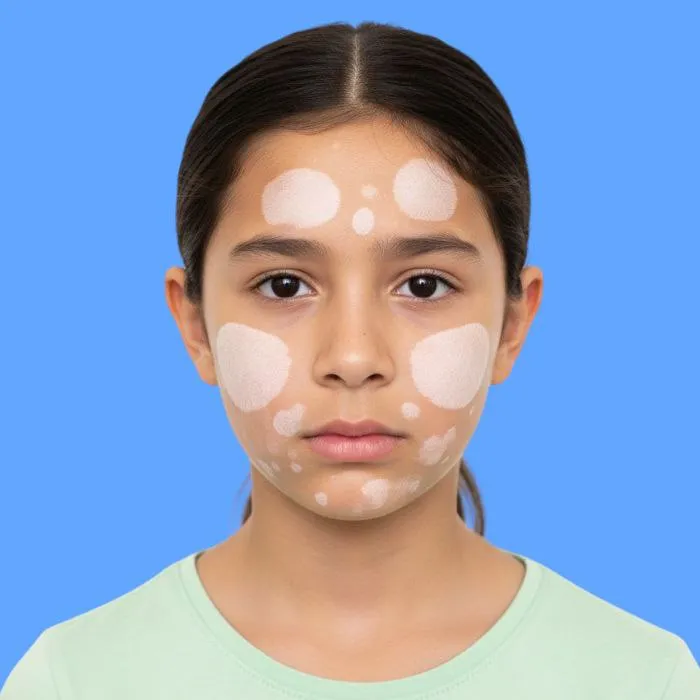What is Pityriasis Alba?
Pityriasis alba is a common skin condition characterized by the appearance of light-colored patches on the skin due to a buildup of dead skin cells.
It often appears on the scalp, face, and arms. While not contagious, it can be unsightly.
Causes of Pityriasis Alba
Pityriasis alba can be caused by several factors, including:
- Dry skin and insufficient hydration.
- Excessive sun exposure and UV radiation.
- Certain skin conditions such as psoriasis or eczema.
- Deficiencies in certain vitamins and minerals essential for healthy skin.
Symptoms of Pityriasis Alba
Symptoms are usually quite noticeable and include:
- Small white patches on the skin or scalp.
- Sometimes mild itching in the affected areas.
- Skin peeling and dryness.
- An increase in the appearance of patches during the winter months or in dry weather.
How to Diagnose Pityriasis Alba
Diagnosis involves a physical examination by a doctor, including:
- Clinical examination to determine the shape and location of the patches.
- Ultraviolet light to highlight the white patches.
- A skin biopsy is taken in rare cases to confirm the diagnosis.
- A medical history is reviewed to identify the causes of dryness or any associated conditions.
Treatment of Pityriasis Alba

Treatment for pityriasis alba focuses on moisturizing the skin and reducing flaking, including:
- Using moisturizing and anti-dandruff creams.
- Washing the hair and scalp with a suitable medicated shampoo.
- Avoiding excessive sun exposure and using sunscreen.
- In some cases, a doctor may prescribe antifungal medications or topical steroids.
When to see a doctor?
You should see a doctor if the patches worsen, severe itching or sores appear, or if the skin does not improve after using moisturizers and home care for an appropriate period.
Tips for preventing the condition
The risk of developing pityriasis alba can be reduced by following certain measures, including:
- Moisturizing the skin regularly with moisturizing creams.
- Keeping the scalp clean and washing hair regularly.
- Protecting the skin from the sun with a suitable sunscreen.
- Eating a balanced diet rich in vitamins and minerals to support healthy skin.
Frequently Asked Questions
Is pityriasis alba contagious?
No, pityriasis alba is not contagious and cannot be transmitted from person to person.
Can pityriasis alba be cured permanently?
Yes, with consistent skin care and the use of prescribed treatments, the patches can be reduced and the appearance improved.
Does pityriasis alba cause other health problems?
No, it is mostly a cosmetic issue and does not affect overall health.
Article Summary
Pityriasis alba is a common skin condition that causes light patches and slight scaling of the skin. Regular moisturizing, using medicated shampoos and creams, and protecting the skin from the sun help control symptoms and improve the skin's appearance.